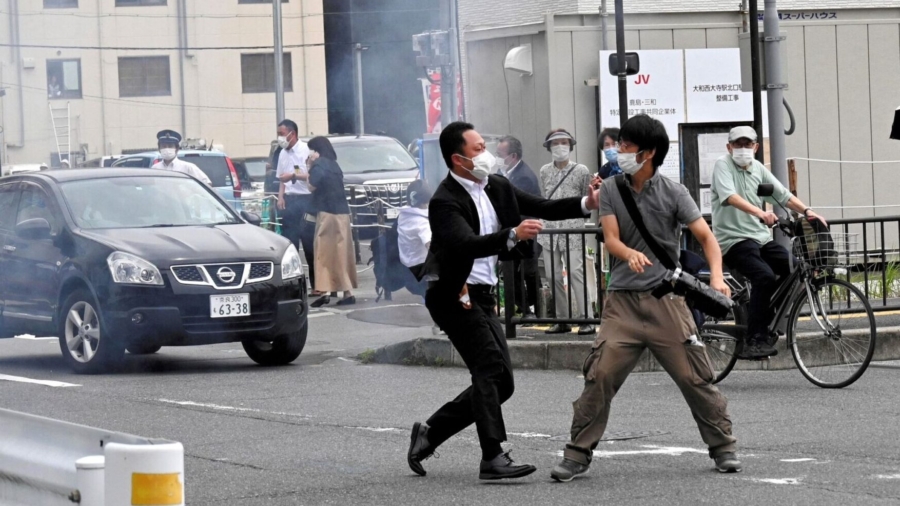The man who allegedly shot dead former Japanese Prime Minister Shinzo Abe on Friday had a military background but denied that his motive was related to Abe’s political beliefs.
Tetsuya Yamagami, 41, was unemployed and had served in the Maritime Self-Defense Force (MSDF) for three years until 2005, according to police.
He was arrested in the Japanese city of Nara where he allegedly shot Abe, who was delivering a campaign speech ahead of the July 10 upper house election.
Yamagami, when apprehended, admitted his intention to kill Abe whom he believed was connected to a religious organization that had bankrupted his family, The Asahi Shimbun reported, citing investigative sources.
“My family joined that religion and our life became harder after donating money to the organization,” Yamagami was quoted as saying by the sources.
The suspect told investigators that he initially targeted the organization’s leader, “but it was difficult,” so he decided to change target.
“I took aim at Abe since I believed that he was tied [to the organization]. I wanted to kill him,” he said. Yamagami also admitted that he attempted to make explosives.
An unnamed source, who was identified as Yamagami’s relative in the report, said the suspect’s family “fell apart” because of the religious group, and that he was “convinced that Yamagami suffered damage from the organization.”
The suspect used a handmade gun measuring 40 centimeters in length and 20 centimeters in height. Police also found similar guns, explosives, and cylindrical objects during searches at Yamagami’s apartment in Nara.
Yamagami had previously worked as a dispatched staff worker for multiple companies after resigning from MSDF. He started working at a manufacturing company in the Kansai region in 2020 but left in May for health reasons.
Abe’s Murder
Abe, Japan’s longest-serving prime minister, was delivering a speech for a Liberal Democratic Party of Japan candidate’s election campaign ahead of upcoming elections when, at around 11:30 a.m., two shots rang out.

A reporter for public broadcaster NHK, who was at the scene, said she heard what sounded like two consecutive gunshots and then saw Abe bleeding.
Footage aired by the station captured the moment he fell on the street, after which several security guards ran toward him. He was holding his chest.
The 67-year-old former prime minister was airlifted to a hospital after the shooting and later pronounced dead.

Police reported that Abe died as a result of blood loss. An autopsy revealed that Abe had been shot twice in the upper left arm and neck, as well as another neck wound, the cause of which was unknown, Kyodo News reported.
Speaking before Abe’s death was announced, Japanese Prime Minister Fumio Kishida condemned the shooting.
“This attack is an act of brutality that happened during the elections—the very foundation of our democracy—and is absolutely unforgivable,” he said.
Abe served as Japan’s Prime Minister and as the president of Japan’s Liberal Democratic Party from 2006 to 2007 and again from 2012 to 2020.
His latest term was due to end in September 2021 but he resigned in August 2020, citing concerns over his health. He later shared that he had a relapse of ulcerative colitis, an intestinal disease.
Mimi Nguyen Ly and Tom Ozimek contributed to this report.
From The Epoch Times


